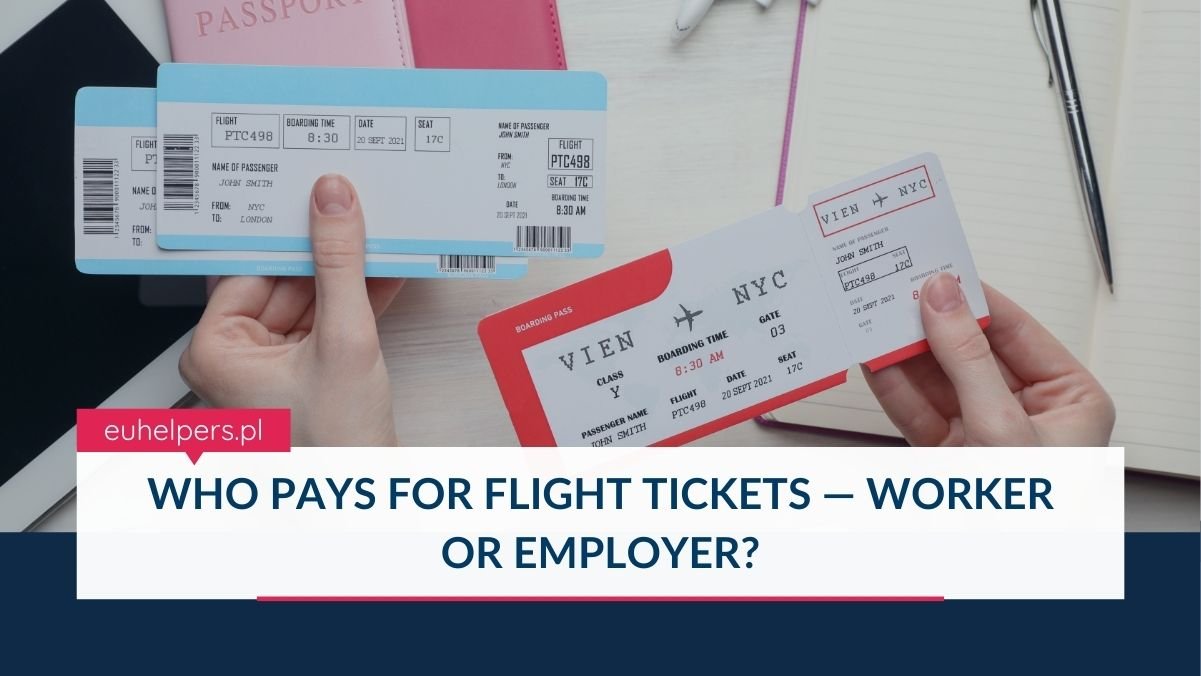
Many foreign jobseekers planning to work in Europe want to know whether the employer covers flight tickets or if the worker must pay for their own travel. Understanding this cost is important before signing a contract or beginning the visa process.
Who Pays for Flight Tickets — the Worker or the Employer?
In most European countries, workers pay for their own flight tickets, especially for blue-collar jobs such as warehouse work, construction, factories, logistics, caregiving, and agriculture.
Flight payment is usually not included as a benefit unless stated in the job offer.
However, in some cases employers do contribute or fully cover flights.
When Workers Pay for Their Own Flights
Foreign workers typically pay for their travel when:
-
The job is in a blue-collar or entry-level sector
-
The contract does not mention travel benefits
-
The employer provides other support like accommodation or work permit sponsorship
-
The job is offered through recruitment agencies
-
The employer hires in large numbers and does not cover travel for mass recruitment
This is the most common situation across Europe.
When Employers Pay for Flight Tickets
Some employers reimburse flights or provide free travel, usually in special cases:
1. Skilled or Hard-to-Find Workers
Jobs in healthcare, engineering, IT, and specialist fields may offer free flights.
2. Seasonal or Temporary Programs
Some seasonal agriculture or hospitality employers may offer partial reimbursement.
3. Government-Linked Programs
Certain training schemes or country-government agreements may include covered travel.
4. Relocation Packages
Large companies may include flights as part of a relocation benefit.
5. Return Flights at the End of the Contract
Some employers offer return tickets after the worker completes the agreed contract term.
Does the EU Require Employers to Pay for Flights?
No.
European labour laws do not require employers to cover flight tickets for foreign workers.
Flight costs depend entirely on:
-
The employer
-
The job type
-
The contract
-
The hiring arrangement
Always check the contract for travel-related benefits.
What About Workers Coming to Poland, Germany, Czechia, Slovakia, and Other EU Countries?
For most blue-collar jobs in Central and Western Europe:
-
Workers pay for their own flights
-
Employers handle work permits, job contracts, and local onboarding
-
Travel is considered the worker’s personal cost unless mentioned otherwise
This is standard practice.
Can Employers Reimburse Flight Costs Later?
Some employers may reimburse after:
-
The worker completes a probation period
-
The worker completes 6–12 months of work
-
The company offers a retention bonus
If this benefit exists, it must be clearly written in the job offer.
Important Advice for Workers
-
Do not rely on verbal promises.
-
Request written confirmation if the employer claims they will pay for flights.
-
Confirm if reimbursement is partial or full.
-
Check whether the company buys the ticket or reimburses after arrival.
-
Avoid paying extra “airfare service fees” to unverified agents.
Conclusion
In Europe, workers usually pay for their own flight tickets, especially in blue-collar or general labour roles.
Some skilled jobs, relocation roles, and special programs may cover flight costs, but this depends on the employer and contract.
Always review the job offer carefully to understand which travel expenses are included and which are not.
